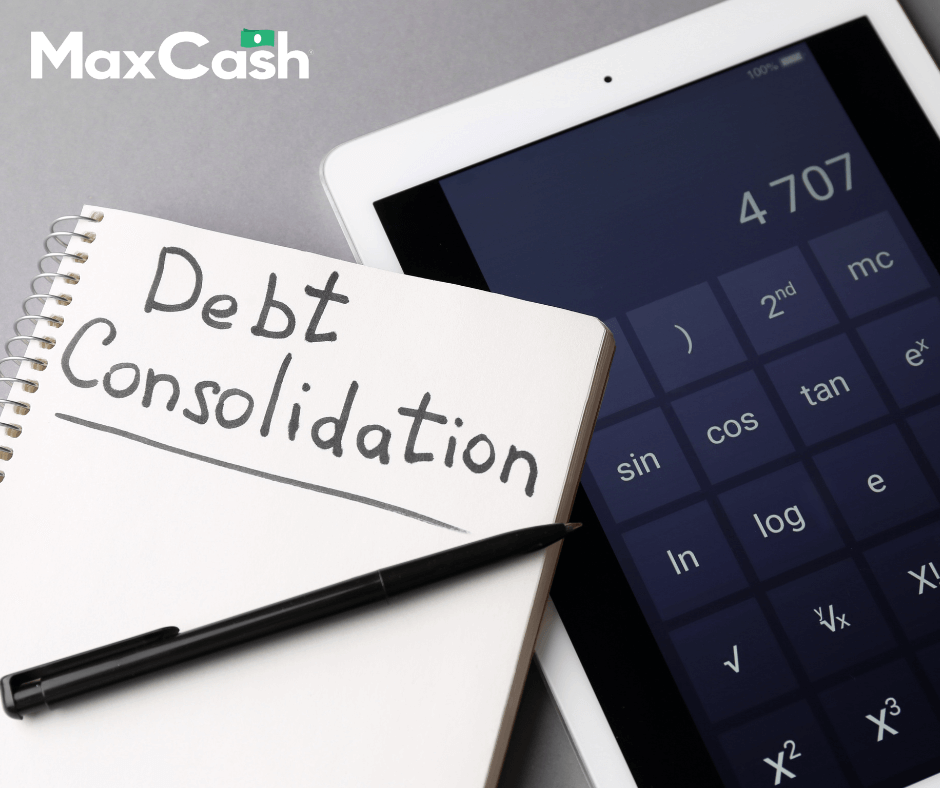Learn How You Can Consolidate Debt With a Loan
Trying to manage various credit cards and other loans can be overwhelming when it comes to handling your debt. If you’re looking for a real, viable solution, one option worth considering is a consolidation debt loan. This detailed guide aims to equip you with information to understand how debt consolidation works, how to consolidate debt with a loan, and everything in between, ensuring that you stay well-informed throughout the process.
Debt Harms the Family
It can happen to anybody: a car accident, a job layoff, or an unexpected trip to the emergency room. All of these options can devastate your finances. The stress brought on by this debt can strain relationships with your loved ones, leaving families feeling alone and isolated. But it’s not all futile. Communicating openly about the problem is the first step in finding a solution, as well as seeking advice from seasoned professionals. Consolidating debt is one way of alleviating the pressure and providing much-needed financial relief so that families can work together to get where they want to be.
Understanding Consolidation Debt Loans
Debt consolidation loans simplify your financial obligations by merging all of your existing debts into one loan. Instead of dealing with multiple payments and varying interest rates, you’ll only have a single, manageable monthly payment. Here’s what you need to know about consolidation loans:
How Consolidation Debt Loans Work
Through this type of personal loan, you can pay off all of your existing debts, leaving you with only one loan to tackle going forward. The ultimate goal is to secure either a lower interest rate, a more convenient payment schedule–or both.

Types of Consolidation Loans
You can choose between a secured or an unsecured consolidation loan. Secured loans require collateral, such as a vehicle title, while an unsecured loan does not. Secured loans are typically easier to qualify for than unsecured loans because collateral is involved in the application process.5
Consolidating Debt Pros and Cons
Before making a decision about your finances, it’s crucial to have a firm understanding of the pros and cons of consolidating your debt. While it can streamline your finances and potentially help you access a lower rate, it can also extend the repayment period, which could lead to further debt in some cases.4
Pros:
- Simple Payments: Having just one payment makes it easier to manage your finances.
- Potential Interest Savings: Consolidating your debts may result in a lower interest rate, reducing the total amount you pay down the line.
- Long-term Credit Improvement: Consistently making on-time payments can positively impact your overall credit score over time.
Cons:
- Potential Higher Costs: Extending the loan term could lead to paying more in the long run, depending on the terms you are able to secure.
- Risk of Additional Debt: With your old debts consolidated, it could open the door to new ones if you’re not careful.
- Negative Credit Score Impact: When you consolidate your debt by applying for a loan, your credit score can take an initial ding, but that can be inconsequential for most people.
Finding Debt Consolidation Loans with a Bad Credit History
Even if you have a less-than-perfect credit history, there are debt consolidation loan options specifically tailored for individuals with bad credit scores. While consolidation loans for bad credit scores may tack on higher interest rates or require collateral, these loans can still be beneficial for debt relief.4 5 Here are some important factors to consider before searching for debt consolidation loans with a bad credit history:
Interest Rates
If you have poor credit and decide to go with an unsecured loan, brace yourself for possible higher interest rates. When your creditworthiness is low, many unsecured loan lenders may perceive you as more of a credit risk.
Secured Loan Options
Depending on the loan, you may need to provide collateral to increase your chances of approval. A vehicle can be used to secure the loan, and this is known as a title loan. To obtain a vehicle-secured loan, you will need a paid-off car and a title in your name, along with a few other key documents.5
Thorough Research
Take the time to explore your options and compare them thoroughly to find the best fit for your situation. Max CashⓇ works with partners who are experienced and dedicated to providing the most optimal debt relief solutions. We’ve already done the research for you, so call 833-207-9052 to learn more about consolidating debt with a loan!5
Does Consolidating Your Debt Hurt Your Credit?
As mentioned, there may be an initial decrease in your credit score due to the hard inquiry from applying for a new loan. However, with consistent, timely payments on the loan, you can gradually rebuild your credit score and potentially improve it over time. Additionally, decreasing your credit utilization can positively impact your credit score initially after the consolidation process.

Changing Your Behavior and Spending Habits
When it comes to debt relief, it’s not just about restructuring your finances; it is also about identifying and changing the underlying spending habits that led to the debt in the first place. Figure out what spending triggers are for you and try to avoid them. Also, consider creating a solid budget and setting financial goals that you can realistically achieve. Many individuals may find themselves in debt simply because they do not understand how credit works or what financial literacy entails.
The Legal Implications of Debt Consolidation
It’s also important to have a grasp of the legal implications that come with your options for debt consolidation. While debt consolidation loans and debt relief programs are options to consider, another possibility when you are financially overwhelmed is declaring bankruptcy. However, bankruptcy, whether it is Chapter 7 or 13, is a lot more severe in its implications. It’s critical to understand the consequences of bankruptcy and explore all of your options when it comes to consolidating your debt. Seeking guidance from financial experts can help you make informed decisions.
Understand Your Debt-to-Income Ratio
Your debt-to-income ratio (DTI) plays a significant role in your ability to secure a loan. DTI is calculated by comparing how much of your monthly gross income goes to monthly debt. A DTI below 36% is preferable. Consolidating your debts may initially increase this ratio, but as you gradually repay your new loan, you should see an improvement in your overall financial picture when it comes to this percentage.
Strategies for Credit Card Debt Relief
There are strategies for finding relief from credit card debt. These include using balance transfer cards, careful budgeting, consolidation loans, and considering debt repayment strategies like the debt snowball method. A balance transfer card involves taking out a new card to split the amount of debt you have on two cards, which can decrease your utilization. Some balance transfer cards have a 0% introductory rate for a specific period of time, making this ideal for tackling debt.
The debt snowball strategy is promoted by many financial advisors. It entails tackling your smallest debts first and working your way up to your largest debts.
Choose Max CashⓇ To Consolidate Debt With a Loan
Consolidating your debts is a decision that involves a comprehensive understanding of your financial situation, personal spending habits, and the pros and cons involved. The goal of debt relief can go beyond just making your payments more manageable. It’s about reaching a stable financial future and setting yourself up for success. Getting to that point can be difficult, but Max CashⓇ can work to connect you with a debt relief partner and take the hassle out of searching on your own. Use the emergency loan calculator today to understand the repayment process for debt consolidation loans!5
Call 1-833-207-9052 today or email us at info@maxcash.com if you have questions or are ready to get started!5


